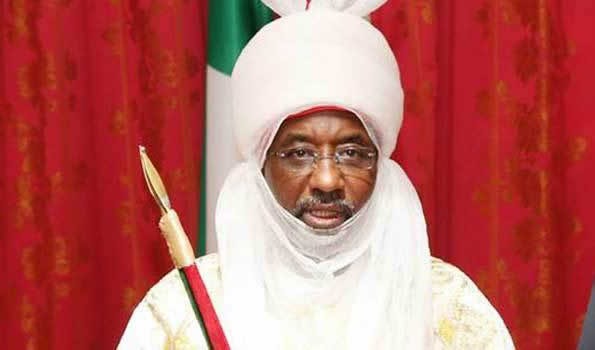Sanusi’s Hypocritical Defense of Economic Reforms: A Comedy of Errors
by Admin ·
 Emir of Kano, Muhammadu Sanusi II, recently turned into an unintentional humorist during his address at the 21st Memorial Lecture of Chief Gani Fawehinmi in Lagos. At the event, he humorously encapsulated the age-old adage: when you crown a clown, the palace becomes a circus. This notion was evident when Sanusi, despite endorsing the harsh economic reforms under the Tinubu administration, refused to defend them on the grounds that his “friends” in power had failed to reciprocate his friendship.
Emir of Kano, Muhammadu Sanusi II, recently turned into an unintentional humorist during his address at the 21st Memorial Lecture of Chief Gani Fawehinmi in Lagos. At the event, he humorously encapsulated the age-old adage: when you crown a clown, the palace becomes a circus. This notion was evident when Sanusi, despite endorsing the harsh economic reforms under the Tinubu administration, refused to defend them on the grounds that his “friends” in power had failed to reciprocate his friendship.
In a moment that was equal parts baffling and laughable, Sanusi claimed, “I have chosen not to speak on the economy, or reforms, or to explain anything because if I explain it, it will help this government. But I don’t want to help this government. They are my friends, but if they don’t behave like friends, I won’t behave like a friend.” This statement, veiled in petty politics, smacked of a classic case of quid pro quo — a “you scratch my back, I’ll scratch yours” attitude.
When an individual of Sanusi’s stature, known for his intellectual prowess and royal standing, openly seeks such reciprocal arrangements from the government, it strikes as both juvenile and desperate. His statement was more befitting of a schoolyard negotiation than the reflections of an economist and former central banker.
In his speech, Sanusi also claimed, “What we are going through today is at least, in part, a necessary consequence of decades of irresponsible management. People were warning that if we continued the way that we were going, this is how we would end up, but they refused to listen.” However, this is precisely the sort of explanation he said he wouldn’t give, creating a contradiction that only served to further underline his lack of self-awareness.
Sanusi’s ongoing defense of the neoliberal policies he’s championed since 2011 has grown predictable. After the Tinubu administration removed fuel subsidies, causing widespread hardship, Sanusi praised the move. When asked about the economic consequences, he justified the policy, citing Nigeria’s inability to continue subsidizing fuel. He also claimed, “It’s injustice for anyone to blame the Tinubu administration for the current economic hardship,” instead attributing the economic spiral to former President Buhari’s refusal to follow his advice on subsidy removal.
Incredibly, Sanusi’s advice to the suffering masses was for them to “endure the hardship” and for the wealthy to support the less fortunate. He absolved the government of any responsibility, suggesting that individuals simply “live within their means.” This advice struck many as tone-deaf, especially given the fact that the impoverished were suffering not due to poor personal financial choices, but because the value of their earnings had been eroded by the very policies Sanusi had long supported.
Despite Sanusi’s continued rationalizations of economic hardship, his call for a quid pro quo arrangement—where he would offer support in exchange for political favors—is both comical and telling. After all, if he truly believes that his explanations and defenses can sway public opinion, his track record of failed attempts in 2012 and during the #OccupyNigeria protests suggests otherwise. During those protests, despite his impassioned defense of subsidy removal, millions of Nigerians flooded the streets to protest the policies Sanusi had championed, rendering his persuasive powers ineffective.
Sanusi’s most glaring flaw, however, is his self-delusion. He seems to believe that if he were to return to propagandist duty, he could somehow smooth over the suffering Nigerians are enduring, especially by framing it as a necessary evil. But Nigerians aren’t looking for more rhetoric; they are seeking relief from the very policies he so ardently defends.
Ultimately, Sanusi’s most telling comment was when he asserted that he was withholding his support from the government because they hadn’t “behaved like friends.” His unspoken demand was clear: if the Tinubu administration supported his interests—such as withdrawing support for the current Emir of Kano—Sanusi would be more than willing to justify the suffering caused by their economic policies. This quid pro quo arrangement wasn’t about solving the nation’s economic woes; it was about furthering Sanusi’s own political and royal ambitions.
The people, however, need more than just justifications—they need tangible solutions to the hardships they face, not another round of neoliberal evangelism from a man who has long shown little regard for their suffering.













